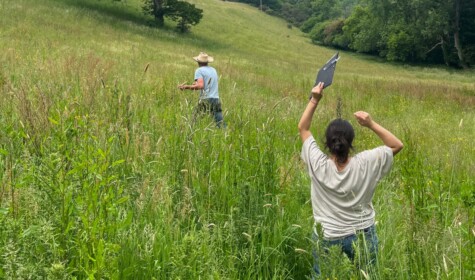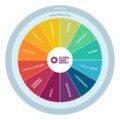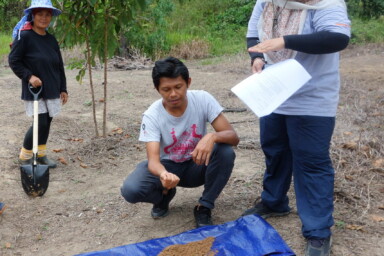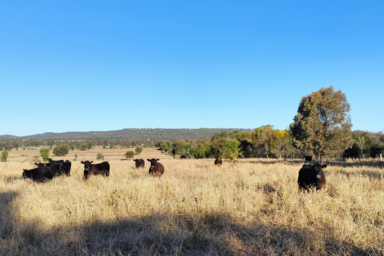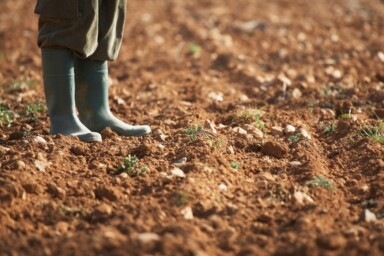This year our farm trials will test the use of the Global Farm Metric framework to enable farmers and others to navigate the complex world of farm sustainability, so that they can support and drive change. The trials will also explore the value of assessing vital aspects of farm sustainability that are sometimes overlooked. Initial farm visits are already providing early insights and generating discussion.
The Global Farm Metric (GFM) framework is a holistic, common language for describing farm sustainability. It provides all those involved in food and farming – from farmers to policymakers to the CEOs of big companies – with a roadmap to navigate the confusing array of different approaches, agendas, initiatives, policies and assessments relating to the sustainability of farming. Previous trials have shown that this confusion can be a real barrier to engagement with the issue of farm sustainability, and to effective change.
In presenting an overview of all aspects of farm sustainability, the framework has already revealed how some aspects are sometimes sidelined or not considered to be part of making farming more sustainable.
While many sustainability assessments focus on the impacts that farms have on people and planet beyond the farm gate (for example, the contribution of farm greenhouse gas emissions to global warming), less attention is focused on the need to ensure that future generations can meet their needs for farm products, in particular, food. If a farm is in a poor state economically, socially or environmentally, that represents a risk to its long-term ability to meet those future needs.
The GFM team is developing a proof-of-concept assessment tool designed to demonstrate the value to farmers, and to the farming sector as a whole, of collecting data on the state of farms, to assess these risks to future production.
A key message is that actions to safeguard the future of a farm by improving its economic, environmental and social condition, very often align with the aim of reducing negative impacts that a farm might be having on the world beyond the farm gate. By finding solutions which achieve both, the sector can develop joined-up approaches to sustainability, recognising and managing trade-offs and opportunities that might otherwise cause negative unintended consequences.
To support this process, as well as testing the value of the GFM framework to engage farmers on sustainability, our trials this year will also use our ‘proof of concept’ assessment tool to explore the value of a risk assessment on the state of the farm system.
The first step in the trials has been for Marina Suárez and Anna Heinlein, from the GFM trials team, to visit farms all over the UK to introduce the ideas behind the framework to farmers and to test the questions that will form the GFM assessment.
Involving farmers in the development and testing of any assessment is crucial. Their first-hand experience and perspectives contribute significantly to developing a robust and practical assessment that reflects the needs and experiences of the farming community. In a similar way, discussing the GFM framework with farmers provides information about how best to make it relevant and useful as a sustainability roadmap and driver for change in the sector.
GFM trial at Troed y Rhiw Farm
One of the farms that Marina and Anna have recently visited as part of the GFM trials is Troed y Rhiw Organics run by Nathan Richards and his wife, Alicia Miller, in West Wales. Troed y Rhiw is an 8.5 ha certified organic farm, which also offers courses in beekeeping and organic farming and has holiday accommodation on the farm as well.
The couple show a real passion for nature, as evidenced by the sign at the entrance of their farm which reads, “Ecology now!” The sign serves as a daily reminder that everything they’re doing on their farm is for nature – their business strategy and decisions are made with nature at the core.
